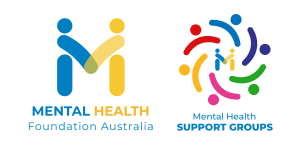Online Mood Disorders Support Group
The purpose of our support groups is to provide an opportunity for people living with mood disorders to connect with other diagnosed people with similar experiences. Group members gain strength and support from each other, and learn new ways of coping through sharing feelings, knowledge, information and ideas.
Our online groups are available to you from anywhere and everywhere, wherever you are in the world.
Join the Online Mood Disorders Support Group
Schedule
Every first Thursday of the month
6:30pm - 8:00pm (Melbourne Time)
Online session via Zoom
How to attend a online session?
Online sessions are conducted on Zoom.
Meeting Link:
https://us02web.zoom.us/j/89541893284?pwd=TzkQabmfBW4XUbDVjImqeGtQFvGJvt.1
Meeting ID: 895 4189 3284
Passcode: 040424
Trouble accessing Zoom? Click here
Troubleshooting tips for Online Meetings:
- If you are having trouble connecting you could try clearing your browser cache.
- There are instructions for this for Chrome, Firefox, Edge and Safari.
- You could also try restarting the Zoom app on your computer or mobile device.
- Zoom do offer some technical support with a knowledge base and customer support.
Unfortunately the MHFA can do very little to assist with connection issues as Zoom is a 3rd party application and out of our control.


